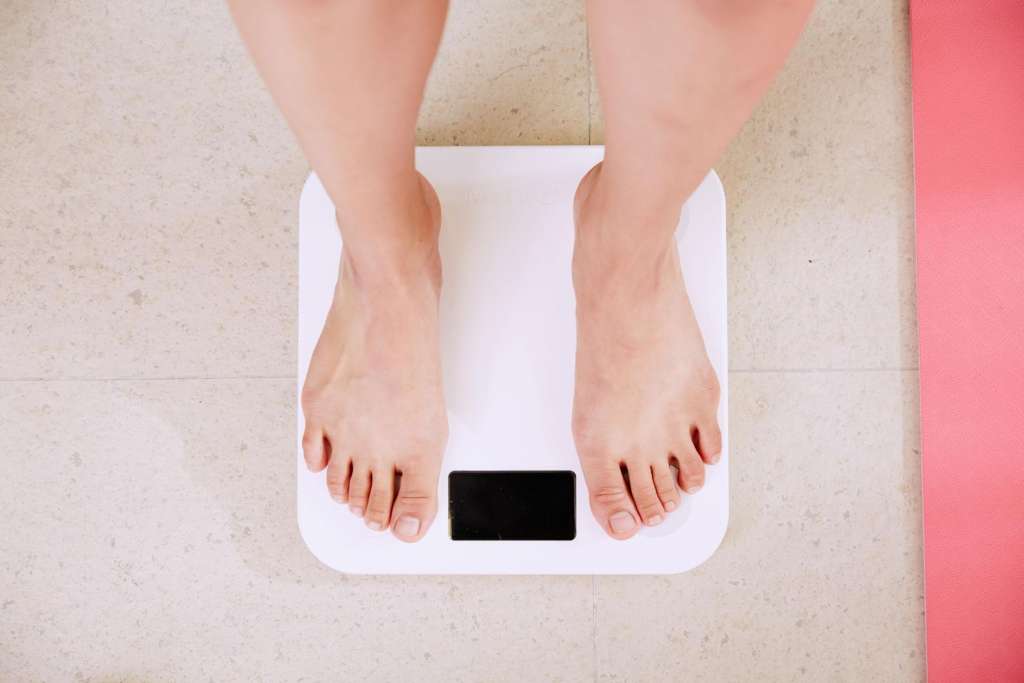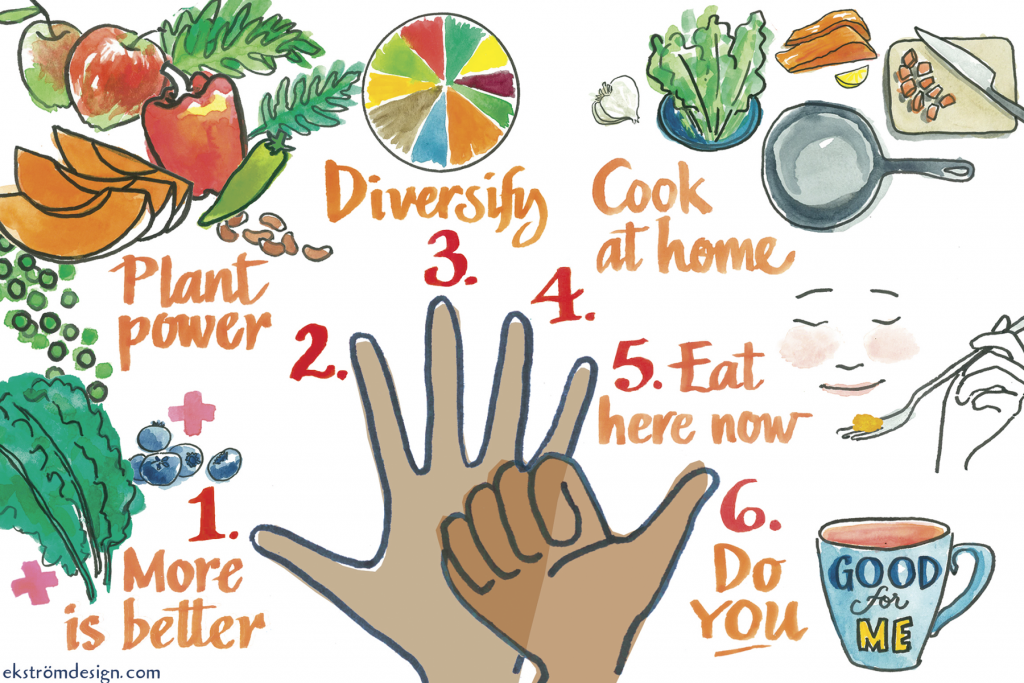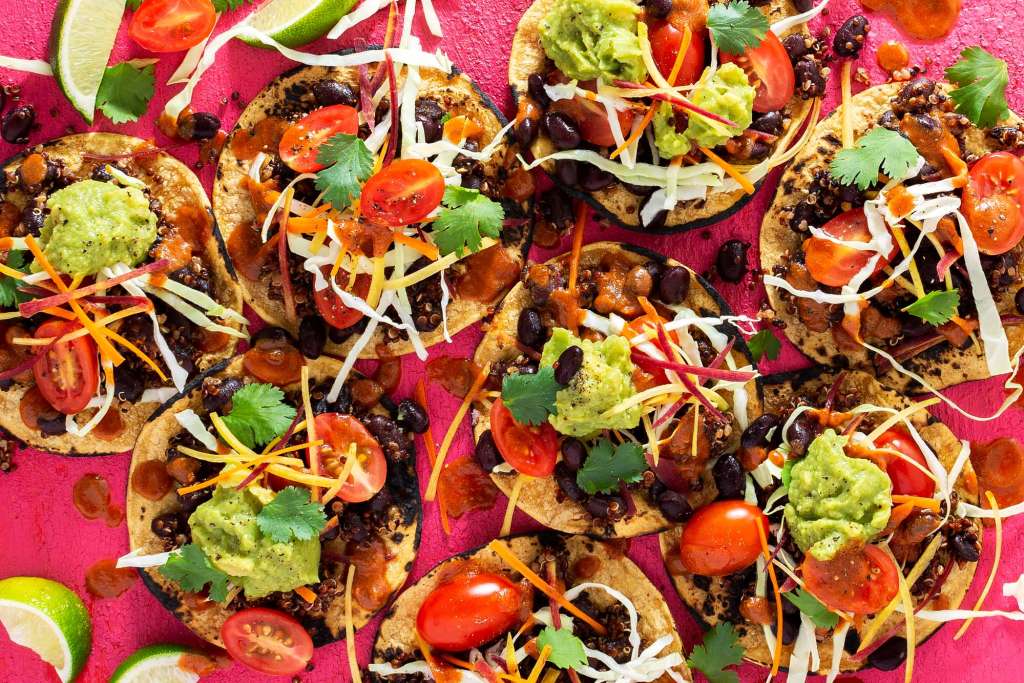What the Weight Loss Plateau Really Means

Anyone who has ever attempted a weight loss diet has experienced the allure of watching the pounds shed week by week until boom—the number on the scale doesn’t budge, despite the fact that you’re still eating carefully and sticking to the exercise program that was initially so effective. Here, Sun Basket’s Director of Nutrition Lindsey Kane weighs in on how weight loss works and why the plateau is a perfectly normal thing.
What actually happens during weight loss
Bodies need energy (calories) to function, and the source of that energy is food in the form of carbohydrates (the preferred fuel), fat, and protein (least preferred fuel). When food is restricted, your body taps into its stored energy inventory. First up is glycogen, the stored version of carbohydrates found in your muscles and liver. Carbohydrates are composed of water, so as you burn through your limited supply of glycogen, part of the initial weight loss is water loss. Once you’ve exhausted your glycogen stores, your body moves on to fat and protein. Protein is stored in muscle tissue, and the last thing your body wants to do is break down muscle. Remember that your heart and other vital organs are muscles, so drawing energy from those is the equivalent of selling your house and personal belongings in a last-ditch effort to survive.
Enter, the weight loss plateau
Our bodies are smart, adaptive, resilient, and biologically hardwired to delay weight loss at all costs. Why? Because food is a basic human need, we need energy to survive, and thousands of years ago our next meal wasn’t always guaranteed. Our ancestors were able to endure food insecurity, shortage, and famine thanks to the body’s resistance to weight loss.
Flash forward to today. Food may be more accessible and available now, but thanks to diet culture, weight loss programs that focus on calorie restriction are still popular. These diets create an intentional energy deficit that actually mimics starvation and kicks your body into a survival mode. In response, your body makes a valiant effort to conserve energy, maintain your weight, and protect your fate. It does this in several ways.
Here are just a few examples:
Metabolic Adaptation
Generally speaking, higher weights come with higher metabolisms. This may sound counterintuitive, but it makes sense considering that muscle is your metabolically active tissue. So, as you lose weight (and thus, lose muscle), you end up losing your most metabolically active tissue, and your metabolism drops, too. Interestingly, studies have found that a 10 percent drop in body weight actually reduces metabolism by 15 to 25 percent—a far greater reduction than what can be explained by muscle loss alone. This phenomenon, referred to as metabolic adaptation, is why weight loss tends to slow down over time, and why it’s so difficult to maintain a reduced weight. The body becomes more efficient at running on less energy, finding a way to drive the same number of miles on less gas.
Appetite hormones go wild
Once your body enters starvation mode, the hunger hormone, ghrelin, is released to kick your appetite into high gear. If you’ve ever found yourself obsessively thinking about food, or feeling ravenous 24/7 while on a calorie-restricted diet, that’s your appetite-driving hormones working hard to save your life.
Satiety hormones sink
Hormones, such as leptin, are released after you eat to tell your brain that you’re adequately nourished. But when you’re on a weight loss diet, these satiety hormones plummet, because—well—you aren’t nourished.
Storage hormones surge
In an effort to capture and store as much energy as possible, storage hormones such as GIP (gastric inhibitory polypeptide) skyrocket. In response, your body latches onto every ounce of energy (calories) consumed, for fear it may be the last meal.
During a weight loss plateau, the temptation is to double down, cut even more calories, create even more food rules, double the length of workouts, etc. This not only perpetuates an even greater metabolic adaptation, but also leads you down a path of food obsession, doing whatever it takes to change the number on the scale, even if it means implementing unhealthy methods that directly contradict the end goal: health and happiness. Weight loss dieting puts you at war with food and with your body. After a while, we become so discouraged that we abandon all of the good habits we cultivated along the way, solely because they don’t seem to be effective anymore. But here’s the deal: the number on the scale tells you nothing about your health. Weight is actually the worst metric for measuring health (I’ll be writing more about that soon.) In the meantime, if you’ve reached a weight loss plateau, remember:
The weight loss plateau is inevitable. It doesn’t mean you are doing something wrong, it only means that you’re human.
Take a deep breath and give yourself a mindset makeover. What does health mean to you? Do these extreme dieting practices truly feel like the right path to well-being?
If they aren’t, redirect your focus to cultivating life-enhancing habits that come from a place of self-care.
Remember that you are worth more than your weight.









